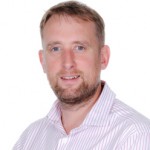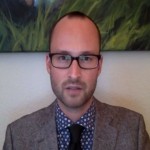Into Africa: Engaging with urology in the developing world
A version of this blog has also been published on the Trends in Urology and Men’s Health site
We have just completed a superb RSM winter meeting on the East African ‘Spice Island’ of Zanzibar. In addition to exciting updates in urological practice within the UK, the president of Zanzibar attended the meeting to give a fascinating insight into the history, problems and challenges facing Zanzibar.
However it was our interaction with local healthcare professionals during our visits to the islands hospitals which made the focus of the meeting (urology in the developing world) especially poignant. Delegates had the opportunity to visit the Mnazi Mmoja Hospital in Stone Town, where workshops were held with local doctors, as well as more rural hospitals in Makunduchi and Kivunge. The delegates at the meeting were joined by colleagues from South Africa, mainland Tanzania, two English and one American urologist who have dedicated a significant proportion of their professional lives to healthcare in Africa.
Professor Joseph Smith from Tennessee has worked from Liberiato Malawi and the DRC to Ethiopia over the years. He has faced war, floods and now Ebola. His efforts to affect lasting change through training have been further challenged by the issue of retention of doctors, many of whom can earn up to a hundred times their salary overseas.
Professor Gordon Williams OBE, has concentrated his efforts in Ethiopia where he has lived for the last seven years. He was heavily involved with the Addis Ababa Fistula Hospital, which was established by American missionary doctors Reginald and Catherine Hamlin in 1974 for the treatment of vesico-vaginal fistulae (VVF). Patients with VVF and severe urinary incontinence (secondary to obstructed labour or sexual abuse) if untreated, are often rendered outcasts from their communities. Professor Williams’ gave a superb presentation on his former pioneering work at the fistula hospital and the holistic approach to patient management, reflected by patients’ extensive mental, physical and social rehabilitation pre and post-operatively. His team’s work has undeniably transformed the lives of thousands of women. Yet as Gordon reaches the end of his career, there is no natural successor in place.
Mr Ru McDonough (consultant urologist, UK) has had a professional relationship with Zanzibar for two decades. The success of his charity HIPZ (Health Improvement Project Zanzibar) (@HIPZ_UK) is testament to his engagement with the health ministry in identifying realistic local healthcare needs. They have proposed incentivised, financially viable, strategic projections for growth with quantifiable outcome measures. HIPZ has leased two rural hospitals from the government and successfully initiated ambitious restructuring and building projects.
We also heard from Dr Frank Bright from Kilimanjaro Christian Medical Centre (KCMC) and Suzie Venn and Phil Thomas (from the UK) about their biennial urological education workshops at the KCMC where core surgical skills are taught to urologists from all over East Africa.
All four endeavours are praiseworthy and clearly have had a positive impact on the lives of many patients. The opportunity to listen firsthand to their accounts and visit local facilities, prompted informal discussions amongst peers around how we as professionals might best support sustained healthcare improvement projects overseas.
Is it, for example, sufficient to visit intermittently in an attempt to clear the backlog of difficult cases that have accumulated since the last such trip? Should we be focusing our efforts on providing complex surgical procedures when many hospitals are lacking in basic supplies/sanitation? How can we work transparently with governments on a wider scale to improve healthcare provision and health promotion?
Ultimately, it may be that these issues are so inextricably linked with a country’s financial performance that meaningful progress will only result from improving economies and political stability. Perhaps our primary aim should be to support solutions generated by and within individual communities and countries.
In this short video, Mark Speakman (President of BAUS) discusses the healthcare system of the island, particularly the work of the charity HIPZ. Correction: ‘The healthcare spending per capita in 2013 was $8500 in the USA, $3400 in the UK and $30 in Zanzibar!
Main Hospital in Zanzibar
Conference attendees
President of Zanzibar Dr. Ali Mohamed Shein addressing RSM delegates
Clarissa Martyn-Hemphill – Core Trainee, Whipp’s Cross – @Cmartynhemphill
Dominic Hodgson – Consultant Urologist, Portsmouth – @hodgson_dominic









Great blog Clarissa and Dominic, and great meeting that was inspired and organised by Section President Roger Plail. So much medical help is needed in Zanzibar and in mainland Tanzania, as well as for so many other countries in Africa. Difficult to know where to start, but Ru Macdonough has definitely made a considerable difference and is to be warmly congratulated. The concept of a Tanzanian Association of Urology came about when we were there last week, and with a fair wind, and some help from BAUS and TUF, could become a reality later this year. Urologists working together have the possibility of raising awareness, and improving both training and the standard of urological care in East Africa.
I too was at the meeting and found the visit to Mnazi Mmoja Hospital in Stone Town a very humbling experience. Overcrowded clinics, run down wards and basic operating facilities were the norm. Whilst one can only admire the work that Joseph Smith, Gordon Williams and Ru Macdonough and many others are doing they are really only scratching at the surface of the problems. Zanzibar, Tanzania and Ethiopia are very poor countries and there is much to be done to improve the medical care. My thanks go to Roger Plail for his inspired choice of location for the RSM Winter Urology Meeting to bring home the realities for third world medicine.
Guy’s & St Thomas’ spends in a week what Zanzibar spends in a year on healthcare. With a population of 1.3 million on 2 separate islands, His excellency Dr Shein, president of Zanzibar has considerable challenges. There is only 1 doctor per 50,000 people on the island (1 per 400 in the UK), but Zanzibar’s new medical school should start addressing this. There is only one doctor anaesthetist, no analgesia for delivering mothers, and maternal death is too common.
The government in Zanzibar is motivated to effect change however it struggles with lack of resources. HIPZ is addressing these issues in the south at Makunduchi, and is now taking on the greater challenge of Kivunge in the north. This requires funds. I would encourage all who can contribute to go http://www.hipz.org.uk. It’s not all about money, but money is important.
The hospital I visited has a lab but struggles to get reagents for the blood counter and biochemistry machine due to lack of funds. An ultrasound machine was fantastically useful until about a year ago when it stopped working and it can’t be serviced or repaired.
The HIPZ team are remarkable as are the members of the team at Makunduchi .
Hats off to those who have rolled up their sleeves , given it a go and made a difference. One thought – Might twinning of countries be an answer ? Or Twinning of cities ? the problems of a whole continent may feel overwhelming but those of one country or city less so. 50 countries of Europe & 54 countries of Africa ….
It was a great scientific meeting. Whilst the presentations, their discussion and the meeting with the President of Zanzibar were all very stimulating, it was the opportunity to visit the 3 Zanzibar hospitals that had the greatest impact on me.
I believe we are sometimes guilty of visiting overseas hospitals to perform relatively small numbers of complex operation before leaving. The quote ‘Give a man a fish and you feed him for a day. Teach a man to fish and you feed him for a lifetime’, was never more appropriate.
Zanzibar remains a very poor country. Whilst the USA spends approx $8,000 per capita on health care per year and in the UK we spend approx $3500, the health care budget per person in Zanzibar is $30. This needs to be spent very carefully.
The HIPZ project in Zanzibar, (https://www.hipz.org.uk) under the leadership of Ru MacDonagh and his colleagues, has got the basics right in Makunduchi hospital in the South of the island, over the last 7 years. They have set up basic but effective medical records, a pharmacy with a proper structure and basic clinics treating hypertension, diabetes, eye problems and dental conditions. They understand that it is people and systems that make healthcare sustainable.
The early-morning handover from the night to the morning staff that we joined last Thursday morning was an absolute credit to all their staff. This was thorough and detailed with very strong camaraderie between all staff present, working with very limited facilities.
In a country with a frighteningly high maternal mortality rate, Makunduchi had no maternal deaths in 2014 with approx 1500 deliveries performed. Refurbishment to wards is an ongoing project (photo)
The contrast with the larger Kivunge hospital project in the North, which was only taken over by the HIPZ project a year ago, shows that there is still much to do. The new outpatient and maternity service (see photo) developed by the HIPZ project opens in the next 3 months will make a tremendous difference for both patients and staff. There is a tendency for overseas organisations to donate complex equipment, which is impossible to repair once it breaks down. It was clear to me when I visited last Tuesday that a washing machine repair man would have been of far more benefit to them last week than a consultant urological surgeon.
The Mnazi Moja hospital (see cartoon) is the main hospital in the capital Stone Town, which attempts to provide a broad range of more specialised services but with very limited resources. The RSM delegates provided a number of teaching sessions and workshops during the week we were there.
Kivunge new facility
Old male ward and refurbished paediatric ward (by the Sabrina Trust)
Patient drawn cartoon of Mnazi Mmoja Hospital
As well as being deeply impressed by the hard work of the UK, American and African doctors in raising the standards of healthcare in East Africa. The Royal Society of Medicine, Urology Section visit also identified the importance of financial support being directed to those “on the ground” who understand the current issues and problems, and allowing them to find realistic solutions.
A relatively small charity such as HIPZ (Health Improvement Program Zanzibar) has made a measurable impact to healthcare and a real difference to people lives. So a move to supporting such charities is to be welcomed, as well as encouraging their model of “hospital working” to be spread throughout the region. One often reads that a relatively small charitable donation can make a huge impact to a person and a few dollars in extra funding from HIPZ has made a massive difference to the care given in the hospitals it manages.
Well done to all involved.
Huge thanks to all the RSM team who visited the amazing islands of Zanzibar and were endlessly positive about our work there. After 7 years of building the HIPZ model of healthcare delivery I believe we are making significant progress and now offer effective healthcare to over 250,000 people who only a short time ago had little or no access to any medical services.
Thanks again to the RSM and in particular to Roger Plail who set this trip up and made it an enormous success against all the odds!
Fantastic meeting, and the blog report is really great, many thanks Dom and Clarrisa.
As you know Phil and I travelled onto Kampala in Uganda and ran a Skills Transfer workshop with Hendrik Steinbrecher who is a Paediatric Urologist at Southampton, who was amazing. As usual, it was rewarding, chaotic and thought provoking about the right support to provide.
We know throwing money alone is not effective, so our thoughts on what we can usefully provide are:
1. Transfer of surgical skills
2. Collaboration with other organisations
3. Fostering personnel links
4. Developing a technical support training programme
Frank Bright has asked for teaching support at KCMC. We know going out for the first time is a daunting prospect, so suggest that this year’s KCMC workshop we encourage any consultants interested, to come out to see what is involved.
If you would be interested, or have a colleague who would be, please get in contact. The date is the week of 23rd of November 2015. It will cost you about £1000 for the flight and accommodation.
Thank you for Clarissa and Dom for their excellent account of the challenges faced when practising medicine in some of the more remote areas of the world. This meeting was a new venture for the RSM and clearly has been very successful. The opportunities to interact with local clinicians would have been invaluable, and one can only hope that similar meetings will run in the future. From the comments posted so far, there is obvious interest and enthusiasm for more meetings and workshops to take place.
Welcome home all delegates and to those who were not able to attend the meeting, please do read this most informative and thought provoking Blog. Well done Clarissa and Dom and Roger for setting this up and to those who have already taken time to contribute, barely hours after returning from the RSM Scientific Winter Meeting in Zanzibar.
To the delegates and guests, thank you so much for coming to Zanzibar and making the meeting memorable! Special thanks go to Ru, Jay, Shingai and Gordon for making huge journeys and for their informative talks which gave the meeting a balanced perspective on health and surgical challenges and successes in different African arenas. Thanks also to Suzie, Richard and Phil for diverting via Zanzibar – your input was invaluable!
To all other delegates, your contributions to the academic programme were of a very high standard and your support and enthusiasm for the visits to Mnazi Mmoja hospital and Kivunge and Makunduchi Clinics, and for the Presidential events was much appreciated. It is very humbling reading the reports above but heartening that even in the short space of 18 months since I last visited Zanzibar, there has been steady progress in improving basic healthcare through HIPZ.
As I said in my summary at the end of the meeting, the aims of taking the Urology Section to Zanzibar were more than fulfilled and i am writing separately to the RSM President Mr Babulal Sethia – who himself has had long associations with developing country healthcare programmes – drawing his and the RSM Council’s attention to this successful Urology Section engagement with Zanzibar and Tanzania and the wider African Urological initiatives.
Thanks to Mark Speakman for a great video summary.
Well done all — the challenges continue and please do maintain contact with individuals you met during your visits and please do note the KCMC workshop mentioned by Suzie. No better place to start!!
Thanks everyone including Anne at Conference Plus and David, Marcus and Mary at Breezes who made it a huge success.
Roger Plail
This was an unusual and outstanding meeting for all the reasons that have been given but it might just be worth encouraging everyone to go to Zanzibar because of the country itself. Tourism is by far the largest contributor of foreign currency (although they still grow spices!).
This did not seem to be a country of widely contrasting incomes; there were few very expensive cars, no examples of poverty induced hunger, although there was much poverty itself and for those in favour of environmentally friendly transport I have never seen so many bicycles. Of course it does help that there are no hills!. It is also reassuringly free from the hideous architecture of many of the new developments on the Indian Ocean coast of Africa so that he innate beauty of the country is still clearly visible. Go if you can and you may even be able to see something of an inspiring medical service as well!.
An excellent meeting in beautiful surroundings but also a very humbling experience seeing the paucity of medical facilities available to the Zanzibari population. Ru MacDonagh’s charity (HPZ) certainly seems to be making a difference at a grass roots level. Perhaps every delegate should make a contribution via the HPZ website (I have).
The academic side of the programme was varied, interesting and useful. Thanks to Dom and Matt I know know what blogs, twitters and other electronic forms of communications are (but won’t be joining Facebook any time soon)!
Congratulations to Roger Plail for organising such a fantastic interesting and educational programme in such a lovely venue.
wonderful meeting, great sailing and very good talks by all. Much imaging discussed by urologists! Wondering whether the section should not be renamed to uroradiology!
Well done Roger, Katie and Anne.